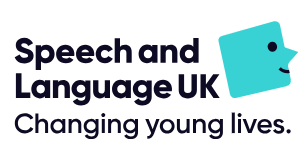Communication and Interaction
Children and young people with speech, language and communication needs (SLCN) have difficulty in communicating with others.
This may be because they:
have difficulty saying what they want to
don’t understand what is being said to them
don’t understand or use social rules of communication
Every child with SLCN is different and their needs may change over time. They may have difficulty with one, some or all of the different aspects of speech, language or social communication at different times of their lives.
These difficulties may be part of delayed development, learning difficulties, hearing impairment or physical difficulties, e.g. cleft palate. However, for many children there is no apparent reason why they are having communication difficulties.
Children and young people with autism spectrum disorder (ASD), including Asperger’s Syndrome and Autism, are likely to have particular difficulties with social interaction. They may also experience difficulties with language, communication and imagination, which can impact on how they relate to others.
At Olive Hill, we use a language programme called Wellcomm, to screen language development and then deliver intervention groups based on the communication needs of individuals and small groups.
Sometimes, it may be more appropriate for your child to be referred to the Speech and Language Therapy team. Speech and Language Therapists identify and support children and young people with a range of communication and eating/drinking/swallowing difficulties. These might include:-
Difficulty understanding spoken language
Being late in starting to talk
Difficulty putting sentences together
Difficulty using language appropriately with others
Unclear speech
Stammering/stuttering
Voice problems, e.g. having a hoarse voice
Eating and drinking difficulties/swallowing problems.
The Speech and Language Therapist will fully assess your child’s speech, language and communication skills and a plan will be agreed to support the child’s communication needs. They work very closely with parents and carers, nursery and school staff and anyone closely involved with the child to support the progress of your child.
If you are concerned that your child needs support with their communication and language, then please come and speak to a member of staff in school. We are able to discuss how we can support your child in school and make recommendations about referrals to the Speech and Language Therapy Service, if appropriate.
The Speech and Language Therapy Service in Dudley has an open referral that allows parents and carers to make direct referrals. We do encourage that you speak to us first before making a self-referral.
The Children’s Speech and Language Team can be contacted at:
Brierley Hill Health & Social Care Centre,
Venture Way,
Brierley Hill,
DY5 1RU
Telephone: 01384 324675
Email: bchft.paediatricslt@nhs.net
Other Useful Websites
SaLT by the Sea
SaLT by the Sea is an independent Speech and Language Therapy Service that offers online learning, therapy, supervision and consultation for children and families. Here you’ll find videos full of ideas and activities to help your child learn new words, speak more clearly and develop their understanding.
Tiny Happy People
Tiny Happy People is a BBC website designed to help you develop your child’s language skills. Explore their simple activities and play ideas and find out about babies and toddlers’ amazing early development.
I CAN’s Talking Point
I CAN’s Talking Point, Speech and Language UK, gives parent/carers the information they need to help children develop their speech, language and communication skills. I CAN has developed a range of resources and factsheets to help children with speech, language and communication needs. They also offer a free enquiry service where you can speak to I CAN speech and language advisor.
Witherslack Group
The Witherslack group supports parents and carers to navigate the journey of SEN with resources and a supportive team who are always on hand to help you and your family.





